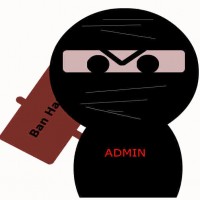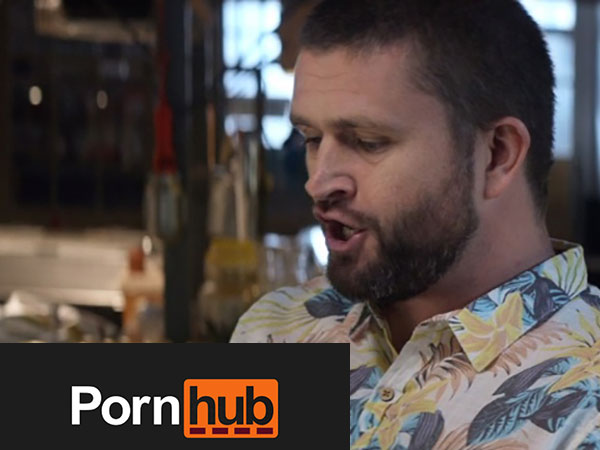Time to Tame a Runaway ICANN?

YNOT EUROPE – The new sponsored Top Level Domain dot-xxx represents an enormous concern for the adult entertainment industry, but in the grand scope of world events, it’s barely a blip on the radar. When all is said and done, however, history may record that dot-xxx was the issue that finally forced world governments to confront the veritable elephant in the living room: ICANN’s role in internet governance.
Away from the eyes of most of the public, tensions have been escalating between the U.S. and European Union over who really controls the internet, and how the process of approving new generic TLDs may play on the world stage. Last week, the curtains were pulled back a bit when reporter Kevin Murphy revealed some of the discord by publishing a letter from European Commissioner for the Digital Agenda Neelie Kroes to U.S. Secretary of Commerce Gary Locke. In the letter, dated April 6, Kroes asked the U.S. Department of Commerce to delay the introduction of dot-xxx, even though the sTLD already had received ICANN’s approval — barely, and over the objection not only of the implied “sponsored community,” but also of ICANN’s own Governmental Advisory Committee.
The GAC is an international body composed of representatives of nearly 100 world governments, and ICANN’s board of directors is obligated by its own bylaws to consider the GAC’s advice before making decisions. On dot-xxx, ICANN’s board unrepentantly ignored the GAC’s long-standing opinion that dot-xxx was a bad idea for a variety of reasons.
And why is the U.S. seemingly caught in the middle? Because the internet was born in the U.S. Initially, ICANN operated under authority of the Department of Commerce, although the organization obtained at least partial autonomy several years ago. ICANN and the Internet Assigned Numbers authority — which oversees the internet’s core infrastructure, including IP addresses — currently operate under contract with the DoC. And the National Telecommunications and Information Administration — which approves additions to the DNS root servers — is a U.S. government agency. Although Kroes sent her letter two weeks after ICANN approved dot-xxx, IANA and the NTIA would not instruct VeriSign to add the domain to the root for nine more days.
That means the U.S. government could have stalled the acitvation of dot-xxx, but didn’t. EU representatives, and the representatives of some other governing bodies, reportedly are not happy about that.
The U.S. government reportedly isn’t happy, either. In an April 20 response to Kroes, U.S. Assistant Commerce Secretary Larry Strickling wrote that the U.S. government opposed ICANN’s dot-xxx decision but ultimately decided “it is not in the long-term best interest of the United States or the global internet community for us unilaterally to reverse the decision.”
Although there is little the U.S. or any other government could do to “kill” dot-xxx at this point — at least without being accused of an agenda that includes an out-of-control censorship agenda and a healthy dose of authoritarian arrogance — all stakeholders want to make sure the same sort of controversy doesn’t erupt again. ICANN is in the process of throwing open the gates for unlimited TLD applications, and no doubt more “undesirable” TLDs will be proposed. No one wants to see a repeat of what has been called “the dot-xxx debacle,” during which ICANN’s board of directors, led by a chairman intent upon leaving a legacy when his term expires in June, got the bit in its teeth and made a contentious, possibly financially motivated, decision. More decisions like that could break the internet for good.
That’s why Strickling and Kroes were scheduled to meet Thursday. In a press briefing before the meeting, the European Commission said Kroes “will make clear European views on ICANN’s capacity to reform.” Essentially, it appears the EC wants ICANN to commit to a more responsive approach to the GAC, exhibit more transparency and accountability about its internal governance, and find a better way to handle country code TLDs, which also have become a bone of contention in recent years.
Most notably, since Kroes’ letter echoed similar comments from the U.S. government, it appears two world powers have lost faith in ICANN’s ability to function as a fair and impartial representative of all internet stakeholders, at least under the organization’s current management. Peter Dengate Thrush, a native of New Zealand, a barrister and ICANN’s chairman of the board since November 2007, has been viewed as something of a loose cannon since becoming the most vocal proponent of dot-xxx. It was Dengate Thrush who told the public in no uncertain terms just after the ICANN board in December tabled its decision about dot-xxx for the umpteenth time that the sTLD would be approved whether or not the GAC or anyone else consented. Since then, he has offended more than one stakeholder by repeatedly hinting governmental meddling in ICANN’s affairs not only isn’t welcome, but is pointless.
Strickling, under whose auspices the ICANN and IANA contracts fall, appears to be ready to use the IANA contract, due for renewal, as way to bring ICANN to heel regarding accountability and transparency, at least insofar as ICANN’s new generic TLD process is concerned.
During a speech he delivered a week after he sent his letter to Kroes, Strickling said, “We are seriously considering these suggestions and will be seeking further comment from the global internet community on this issue.”
What ultimately may come from the Kroes-Strickling meeting is unknowable, but one thing seems fairly clear: ICANN’s board of directors and staff walk a very thin line at the moment. It is crucial the organization create a written-in-stone guidebook for the approval of future gTLDs, and it appears essential that ICANN find a way to appease political interests without bogging down the internet’s growth or threatening the web’s stability. ICANN may not be perfect, but without some international body tasked with oversight of the arcane operational bits, the internet likely wouldn’t exist at all.
Comments are closed.






